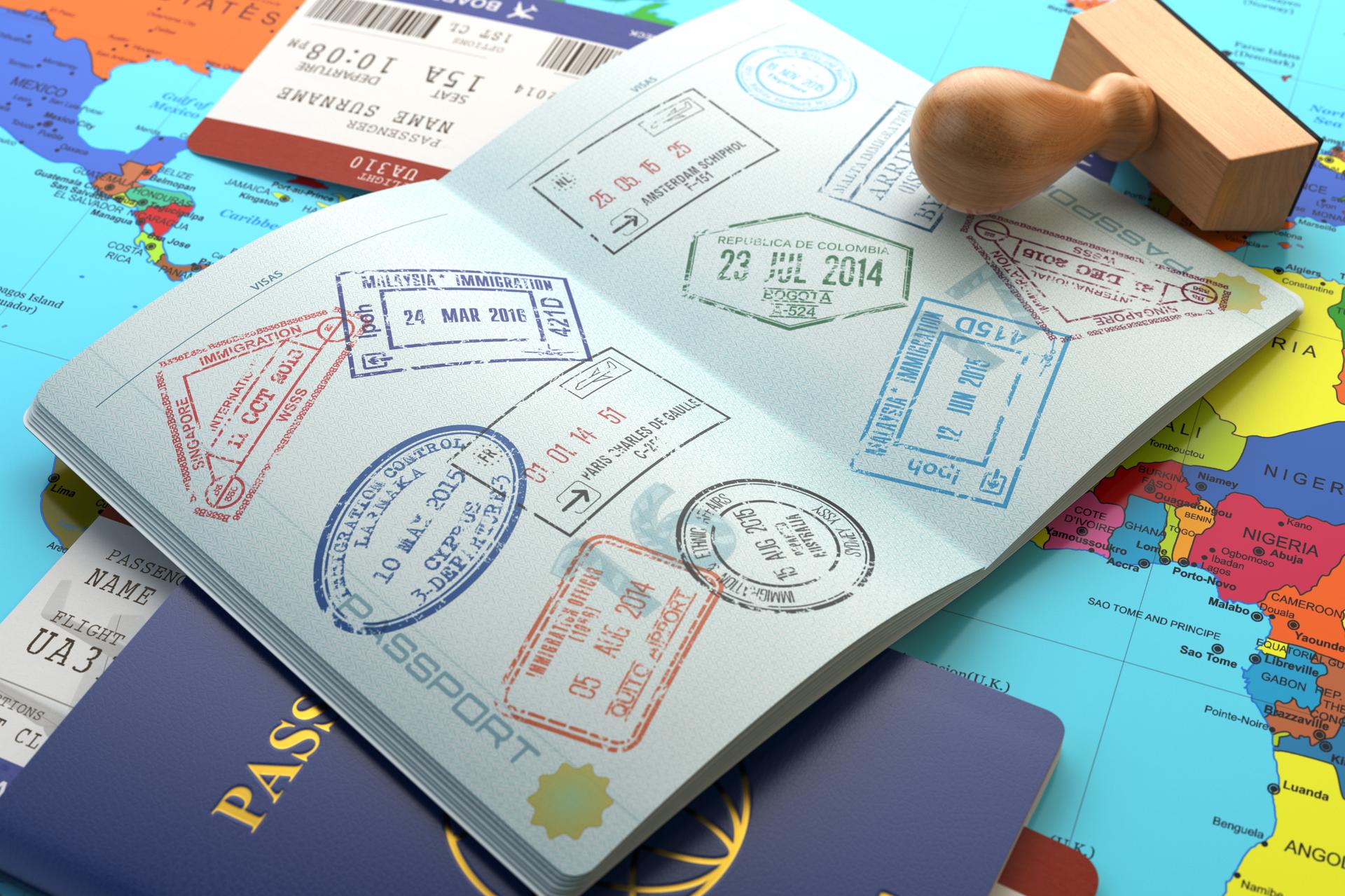Destination Thailand Visa (DTV)

Informally known as the “digital nomad visa,” the Destination Thailand Visa (DTV) has become a popular long-term option for both individuals and families seeking flexibility to live in Thailand. While it is particularly favored by freelancers, remote workers, and digital professionals, this visa is also open to those interested in joining activities or programs that highlight the country’s traditions and lifestyle.
Overview of the Destination Thailand Visa
The Destination Thailand Visa is a long-term multiple-entry visa that allows you to live in Thailand while working remotely for foreign employers or taking part in cultural, educational, or wellness activities. It is valid for 5 years and grants a stay of 180 days per entry into the country, with the option to extend for an additional 180 days at the immigration office.
One notable feature of the DTV is that you can include immediate family members as dependents, meaning that your spouse and children can live with you in Thailand. This makes it easier to balance your professional commitments with family life abroad.
However, it is important to note that the DTV falls under the Tourist Visa category, so neither you nor your family can apply for a Thai work permit, accept employment with Thai companies, or provide freelance services for Thai clients. Engaging in these activities will result in the cancellation of your visa.
Eligibility Requirements for the DTV
To qualify for the DTV, you must be at least 20 years old and fall under one of three categories. Each category has its own criteria that you must meet in order to apply successfully.
Workcation
If you are employed by a foreign company or work independently as a freelancer, you can qualify for the DTV under the Workcation category. This option is for professionals who earn their income from abroad and want to live in Thailand while continuing their work online.
Thai Soft Power Activities
If you plan to take part in activities or programs that highlight and promote Thai culture, you can qualify for the DTV under the Thai Soft Power Activities category. This option is for individuals who wish to join in cultural, educational, wellness, or artistic pursuits that contribute to Thailand’s international presence.
Examples of eligible activities include:
- Cultural Programs: Muay Thai training, Thai culinary training
- Education and Development: Short-term courses, seminars, sports training
- Health and Wellness: Medical treatments
- Arts and Entertainment: Artistic events, music festivals
For the strongest chance of approval, the activity or program should last at least 6 months, as anything shorter is less likely to qualify.
Dependent
If you are an immediate family member of a DTV holder, or if you plan to bring your spouse or children with you to Thailand, you may apply under the Dependent category. Eligible dependents include a legal spouse and unmarried children under 20 years old, with each required to submit a separate application and pay an individual visa fee.
There is no limit on the number of dependents who can apply, provided they meet the eligibility criteria. This option allows families to stay together in Thailand while the primary applicant works remotely or participates in cultural activities.
Required Documents for the DTV
When applying for the DTV, you will need to submit both general documents and category-specific documents. The general documents required from all applicants include:
- Passport biodata page or travel document
- Passport-sized photograph with a white background
- Proof of your current location, such as a passport stamp or residence permit
- Proof of the 10,000 THB visa fee payment
- Evidence of financial assets of at least 500,000 THB, which can take the form of:
- Official bank statements covering the last 6 months
- Payslips
- Sponsorship letters
Keep in mind that the Royal Thai Embassy or Consulate processing your application may charge a different visa fee, request to see financial assets above 500,000 THB, or require additional supporting documents. Because of this, you should confirm the exact requirements with the embassy or consulate before applying.
Workcation
If you are applying under the Workcation category, the documents you must prepare will depend on whether you are an employee, a business owner, or a freelancer:
- Employees:
- Certificate of Employment or Employment Contract
- Employer’s letter confirming your remote work status and ongoing salary
- Personal tax return and recent payslips (optional but recommended)
- Business Owners:
- Cover letter
- Certificate of Incorporation
- Corporate tax return
- Freelancers:
- Professional portfolio highlighting your work; or
- Evidence of freelance work, such as a personal website, invoices, or screenshots of profiles on platforms like LinkedIn and Fiverr
Thai Soft Power Activities
If you are applying under the Thai Soft Power Activities category, you must provide documents that show you will participate in an activity or that you have enrolled in a program. These may include:
- Proof of enrollment or confirmation of participation in the selected activity or program
- Supporting documents from the hosting institution, such as a copy of its business registration
Dependent
If you are applying under the Dependent category, you must provide documents that confirm your relationship to the primary DTV holder. These may include:
- A copy of the primary DTV holder’s visa approval and passport details
- Proof of relationship, such as a marriage certificate, birth certificate, or adoption papers
How to Apply for the DTV
You can apply for the DTV either in person or online, but in both cases, the application must be submitted from outside of Thailand, as it cannot be filed within the country:
- Applying in Person: You may submit your application at a Royal Thai Embassy or Consulate, but some embassies and consulates do not accept applications from non-residents without long-term visas or residence permits in that country. For this reason, it is best to apply in your home country or country of residence.
- Applying Online: You may submit your application through the official Thai e-Visa portal, though applications submitted online are still processed by your local embassy.
Ongoing Obligations of DTV Holders in Thailand
As a DTV holder, you must comply with the following obligations during your stay in Thailand:
- 90-Day Report: You must report your current residential address to the immigration office every 90 days. This can be done in person, online, or by mail. If you are outside Thailand when the report is due, the 90-day count restarts upon your re-entry into the country.
- No Employment: You cannot apply for a Thai work permit, accept employment with Thai companies, or provide freelance services for Thai clients. Your work must remain with foreign employers or clients abroad.
Alternative Long-Term Visas For Living in Thailand
If the DTV does not fully meet your needs, there are other long-term visa options available. These alternatives provide greater stability, added benefits, and conditions that may be better suited to your circumstances.
Thailand Long-Term Resident Visa (LTR Visa)
The Thailand Long-Term Resident Visa (LTR Visa) is designed to accommodate a range of applicants, including remote workers. It grants a stay of 10 years in Thailand and comes with a renewable 5-year multiple-entry permit.
As an LTR Visa holder, you are exempt from paying Thai income tax on foreign-sourced income and will only need to report your residential address to the immigration office once a year instead of the standard 90 days. Similar to the DTV, you can also include an unlimited number of immediate family members as dependents.
Thailand Elite Visa
The Thailand Elite Visa is issued under the Thailand Privilege Program and offers long-term residence options ranging from 5 to 20 years, depending on the membership tier you choose. You may also add immediate family members to your membership for a reduced fee. However, because it is classified as a tourist visa, you cannot work for Thai employers, though you may continue remote work for foreign companies or clients abroad.
The Thailand Elite Visa comes with an extensive package of privileges. These include fast-track immigration services at airports, exclusive discounts at leading retailers, and a points system that can be redeemed for complimentary perks such as spa treatments, healthcare services, or assistance with 90-day reporting. For individuals and families seeking comfort and convenience during their stay in Thailand, this visa presents an appealing option.

